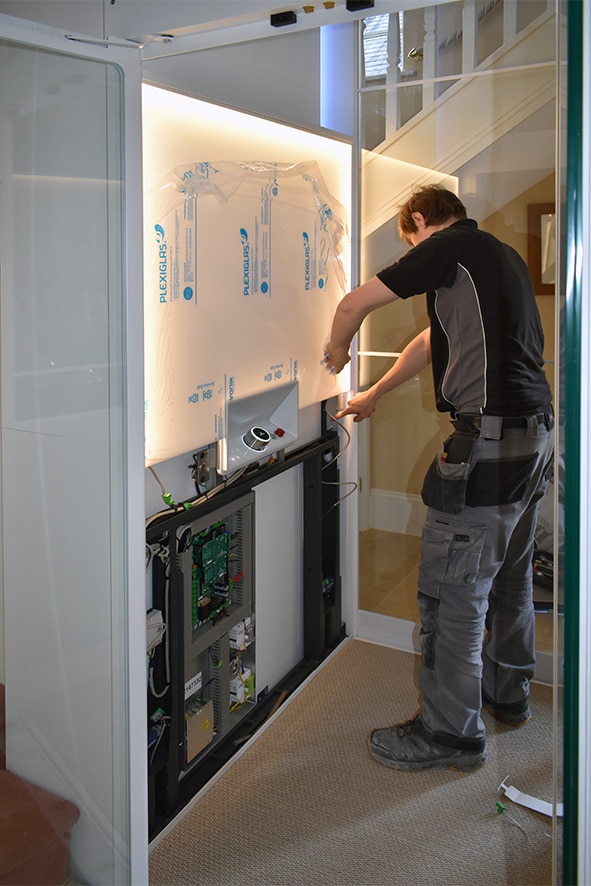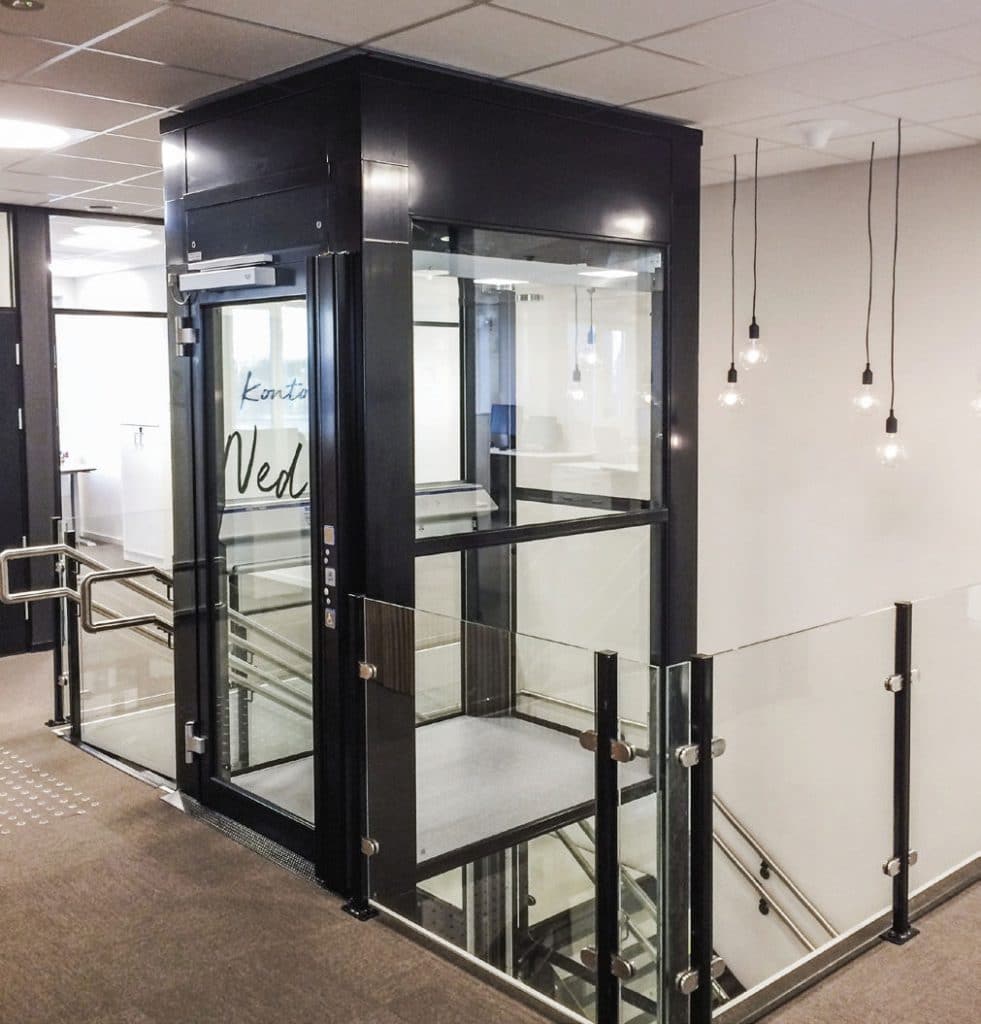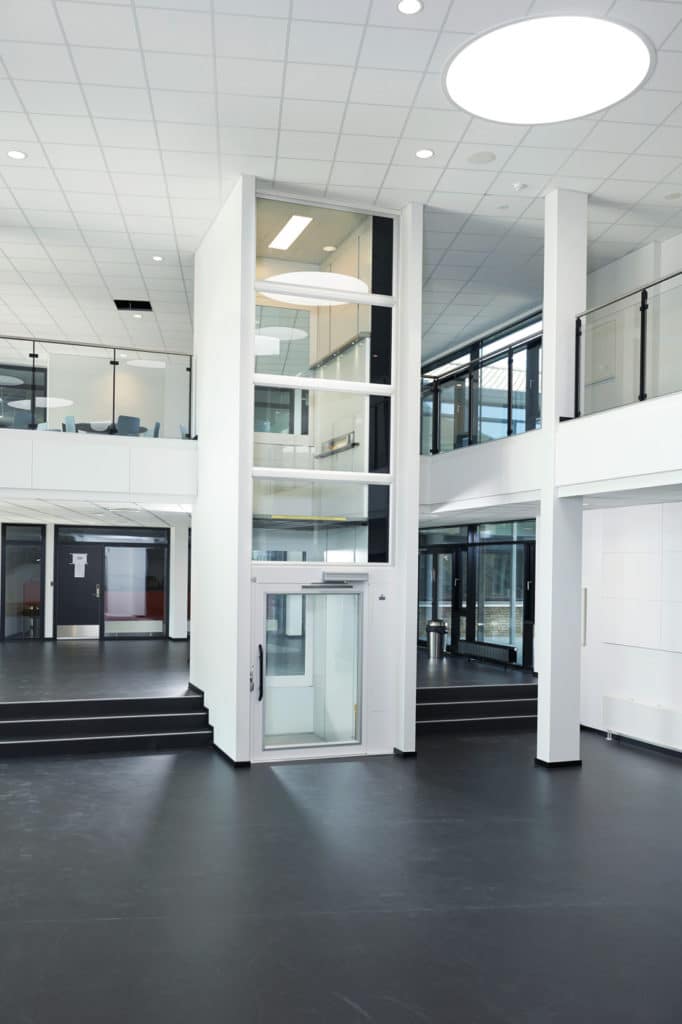LOLER Checks for Commercial Lifts
Lifting Operations and Lifting Equipment Regulations 1998 (or LOLER) checks are required for the safe use of all types of lifting equipment – including commercial lifts.
If you have ever taken a lift or escalator, or used a crane, hoist, or any other type of work equipment, the likelihood is that it has had to go through rigorous health and safety checks, including getting regular LOLER certificates. Here we will provide some details on LOLER checks for lifts.
Our services will give you an independent and impartial assessment of the condition of your lifts and we can offer a full written report on the LOLER checks. We can also provide recommendations for ongoing maintenance to ensure your lifts last as long as possible.
Contact us if you have any questions about our affordable lift servicing packages.

How Often Should LOLER Checks Happen?
LOLER inspections for commercial lifts must be completed every 6 months and the examination of lifting equipment must be carried out by a competent person. The 6-month rule is in place because this is a type of lifting equipment that carries people, not just materials or goods.
Pre-use checks of equipment, such as when a lift has been exposed to conditions like excess water or after the replacement or maintenance of a part, are also necessary.
LOLER Checklist
During regular inspections a competent person will carry out LOLER checks on the key areas of the equipment to determine its safety. LOLER checks can vary widely depending on the lift. See a sample LOLER inspection checklist below, which covers the main criteria for commercial lifts:
- Check equipment use: A basic LOLER check is how the lift is being used. An example of failure in this check could be an obstruction near the door, while a pass would be a clear walkway onto the elevator platform.
- Check equipment suitability: How many people are using this lift? Is it close to the maximum limit of people? If so, then this may not be the most suitable lift for this situation. Appropriateness of all lifting equipment is critical for safety.
- Check installation of equipment: An important LOLER check is whether the installation has been completed correctly, or if there has been any damage to the installation since the last inspection. For a commercial lift, this will involve inspecting the shaft.
- Check markings of equipment: For lifts, there are many safety markings to check, such as the weight capacity and emergency instructions. A LOLER inspection will examine all markings, which will vary depending on the make and model of the lift.
- Check equipment operation: A LOLER check that is also very important for safety is the operation of the lift. During a LOLER inspection, a competent person will assess all functions of the lift, including doors, platforms, safety buttons and any other features.
You can expect a diverse set of LOLER checks for all types of lifting equipment. However, for commercial lifts, they will typically check the use, suitability, installation, markings and operation of the lift. Other types of equipment may require other checks and inspections, such as those for storage conditions.

Can I Do a LOLER Check Myself?
Many companies, organisations and building associations conduct their LOLER checks in-house. A precise checklist of what should be inspected in the lifts on these premises can be drawn up ahead of time and carried out by a competent person.
According to the Health and Safety Executive (HSE), the official government body that enforces these regulations, a competent person is someone who knows:
- What to look at: parts of the lift, machinery shaft and other areas.
- What to look for: signs of corrosion, damage and signs of wear.
- What to do if they find a problem: how to fix or maintain any parts that have issues.
Being a competent person is not a qualification nor a legally defined term. In-house teams need to have knowledge of the manufacturer, to be able to seek advice from the industry, and have experience in using the lifting equipment themselves.
What is the Point of LOLER Equipment Checks?
The basic function of lifting and lowering loads is something many people take for granted, but there are many considerations that you should take into account to achieve better safety at work. Inspections of lifting equipment are the primary way this is achieved. Examination and inspection improve safety and can prevent breakdowns, while also reducing the need for extensive maintenance and repairs.
FAQs and Useful Information
Below, we have answered some common questions about LOLER checks and the services we provide:
Almost any kind of lifting equipment will require a LOLER inspection. Commercial lifts are an important part of the LOLER checks we carry out, but we also cover other types of lifting equipment, such as scissor lifts that are used on building sites, stair lifts in the home, and step lifts on commercial premises. In other industries, LOLER checks need to be carried out on lifting equipment such as forklifts, cranes, hoists, and lifting accessories – including all types of chains, bolts or other parts.
Yes. LOLER inspections are legally enforceable by the HSE. You should be aware of your requirements if you own, manage or operate a commercial space where lifts are in regular use. All LOLER inspections must be carried out by a competent person.
Get LOLER Checks For Commercial Lifts
LOLER checks are important for the safety of all equipment that lifts people and ensures your equipment remains long-lasting. LOLER legislation is enforced by the HSE and they have the power to serve fines and other penalties to organisations that fail to comply. LOLER checks can save lives and it is a duty to complete them to a high standard.
As a leading supplier of many commercial lifts, we can provide excellent service plans for regular LOLER checks, carried out by highly-trained members of our team. We have a wealth of experience built over 25 years in the trade, designing and installing some of the most reliable, sustainable, and cost-effective lifts. Get in touch with us to learn more.
